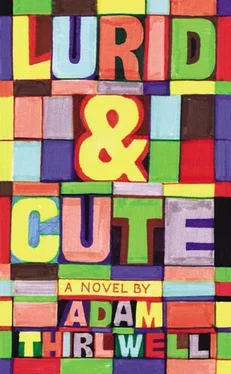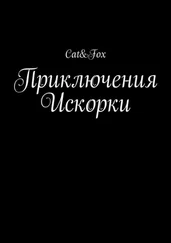— Psychosemitic, added Candy.
My prayers were very fearful of the world’s approaching disasters. If whatever power was in the heavens would solve these problems or avert these disasters, I would promise the heavens my good behaviour. I do not think I am alone in this condition. I performed some good deeds, others went forgotten, and in this way the undone good deeds piled up. Still, I kept on promising. I was loaded down with unfulfilled promises. The last I still remember was a series of good deeds I promised to do, if it didn’t rain one afternoon. It didn’t rain — but I still didn’t perform the good deeds. And yet I went on praying. What I’m saying is that I was born into my family as previous heirs might have been born into some eighteenth-century library, with all the marble busts of previous luminaries and forefathers gazing down on me with blank concern, even if my own were pedlars from the eastern shtetls or yeshiva accountants. It’s definitely true that my parents scared quite quickly — whether the cause was drug-taking in the young, allergic reactions to nettles, correct dress etiquette for bar mitzvah celebrations in the ballrooms of grand hotels, the traffic systems of global cities to which they had never been. To them the world was fearsome even if that world was where they wanted their son to be, and I suppose it’s therefore only natural to inherit such a feeling, a general tone in which you see things — that everything’s unknown and ever so delicately hostile. I go outside and things upset me very fast. In fact I don’t think that’s so mad when you consider that outside the fascists are enjoying a boom, and everyone hates everyone. But still, perhaps without such phenomena I would have been the same. I was like that figure in the old dialogue, crying out always: Madama Morte! Madama Morte! I gave up therapy because I was scared my therapist would die. Even the dogsitter makes you very sad, said Candy once. And it was true. I suppose it has to be admitted that it’s a problem. But then just think how lonely people can be! Our dogsitter is a lovely man but when I sometimes think of the life he lives, to be with the cats and dogs whom other people love and yet love them in some secret way like maybe a mistress loves a husband — I mean there is something secret and unregarded about his love, when perhaps he loves these animals more than anyone else, but still he is forced to leave them, he is forced to say goodbye in a totally casual way, the way a woman might say goodbye to the love of her life, sitting at a cafe table with some acquaintance from the bureau, as if she can hardly remember his name: when I think about him, I do think that this existence is a sad one. I can’t help it. When I step into the world, all I hear is a catalogue of sighs.
but catastrophes do recede
But also it was true that as often as I perceived disaster it somehow also receded. Mornings over this maritime city often began powdery and blue. Even as I drove to the hospital, Romy’s breathing became deeper and more regular and I therefore thought that, while unpractised in medical signs, surely this had to be better than nothing. It surely indicated life, rather than death. And this habit of life returning was not for me unusual. All my fears were undone by day that I had woven in the night. I liked to fall asleep considering the moment of my death, but whenever I tried to think what it would mean to be able to say the sentence I am dying , as in some baroque tragedy, the truth imposed itself on me that in order to be saying such a sentence it would have to be just ever so slightly in the future to be true, and therefore, at the moment of its saying, not true at all. Madama Morte! I die, I die! You see the basic problem. Everything I ever thought might be irrevocable somehow beautifully dissolved. Just as in the end I left Romy — sedated, true, but definitely alive and out of mortal danger — in the care of trained professionals, and my subsequent getaway from the hospital was very stately and unperturbed. As usual the world was powdery and blue, like a rococo miniature. I was driving underneath the tree canopy and behind those trees were mansions and their many vehicles, gently arranged on the drive. It was the world as I always had known it, when being driven by my parents to music lessons or football practice or the first ever parties of my youth, the ones that ended at dawn with everyone staring at each other calmly in a field, feeling tired. That was how I always lived, out here on the outskirts of a giant city: the world occurred to me as a series of impressions seen from the windows of a car. Previously, there were chauffeurs: in this landscape, we made do with parents instead.
MY MOTHER ON MY FATHER
He’s not a chauffeur, cookie. He’s your father.
That atmosphere probably makes the world overall a very difficult place to enter. If everything is happening with the sound cut out, it probably makes it easier to imagine that scenes can be deleted and rearranged, when in fact they maybe possibly cannot. Further out were the motorways and warehouses and the hypermarkets with their empty parking grids painted onto flat surfaces of tarmac. This was the landscape in which I made my getaway, a getaway which did not resemble any frantic speedchase I had ever seen on screen. Because according to the cinema theory, as recorded in those films with the dash-mounted cameras and synthesiser music, a getaway is where the reflected lights slide up and off the windscreen and you go careering through the zigzags of the street lights of LA — ballooning and bursting security fences, upending squad cars, and all that . When in fact getaways are much quieter than anyone thinks. You just move on out of the hospital car park in the early morning having left a girl at reception, while still worrying a little for the state of your steering, and no one wishes to delay or blame you at all. And I was glad of that because while I would have been happy to have stayed with Romy if she had been in any major danger, like certainly I would have done that and taken the consequences as any other hero or giant-slayer, still if I could avoid those consequences then I definitely would take that opportunity. What I wanted was this unusual situation to entirely and totally subside, just melt like a vitamin tablet fizzing in a glass of water. And in one way it was definitely possible to argue, in the manner of some warehouse supervisor with her clipboard and radio mic, that so far everything had gone very well. On my way from the hotel to the hospital no police or other spies had stopped me. At the hospital itself, there had been no insistence on any exchange of names. This all seemed very promising and like the ideal state was possible. Absolutely, I would be monitoring Romy’s progress and doing everything I could to make her happy. In secret I would visit her with the glossies and other treats, and definitely we would be discussing our history and future. Right now, however, I wanted to reduce my life back down to something no bigger than a tape cassette, or memory stick. Although of course to do this I had a final task and the execution of this task was making me perturbed — for while I may have looked like I was calm, inside me I was as ever like an undertow in the big deep dark sea, like I had grand glowing jellyfish and floating fish skeletons of anxiety. I was trying to imagine the conversation I would have with Candy — because I have these internal gifts of hyper-vision, like I have this gift for imagining other ways in which a scene might happen, even when it has happened, or is happening — and yet somehow it seemed difficult to imagine how precisely I would offer explanations. I could not quite envision it, and this absence of any explanation made me anxious and also a little furious, not only at myself for creating such a problem, but also at the world for always demanding so many confessions. I wish confessions did not ever need to happen. Confessions, it seemed to me, were a total illness of our time.
Читать дальше












